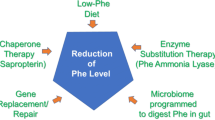Summary
At present, long-chain fatty acid oxidation (FAO) defects are diagnosed in a number of countries by newborn screening using tandem mass spectrometry. In the majority of cases, affected newborns are asymptomatic at time of diagnosis and acute clinical presentations can be avoided by early preventive measures. Because evidence-based studies on management of long-chain FAO defects are lacking, we carried out a retrospective analysis of 75 patients from 18 metabolic centres in Germany, Switzerland, Austria and the Netherlands with special regard to treatment and disease outcome. Dietary treatment is effective in many patients and can prevent acute metabolic derangements and prevent or reverse severe long-term complications such as cardiomyopathy. However, 38% of patients with very long-chain acyl-CoA dehydrogenase (VLCAD) deficiency had intermittent muscle weakness and pain despite adhering to therapy. Seventy-six per cent of patients with disorders of the mitochondrial trifunctional protein (TFP)-complex including long-chain 3-hydroxyacyl-CoA dehydrogenase (LCHAD) deficiency, had long-term myopathic symptoms. Of these, 21% had irreversible peripheral neuropathy and 43% had retinopathy. The main principle of treatment was a fat-reduced and fat-modified diet. Fat restriction differed among patients with different enzyme defects and was strictest in disorders of the TFP-complex. Patients with a medium-chain fat-based diet received supplementation of essential long-chain fatty acids. l-Carnitine was supplemented in about half of the patients, but in none of the patients with VLCAD deficiency identified by newborn screening. In summary, in this cohort the treatment regimen was adapted to the severity of the underlying enzyme defect and thus differed among the group of long-chain FAO defects.

Similar content being viewed by others
Abbreviations
- CPT II(D):
-
carnitine palmitoyl transferase II (deficiency)
- FAO:
-
fatty acid oxidation
- LCHAD(D):
-
long-chain 3-hydroxy-acyl-CoA dehydrogenase (deficiency)
- LCT:
-
long-chain triglycerides (long-chain fat)
- LKAT(D):
-
long-chain 3-ketoacyl-CoA thiolase (deficiency)
- MCT:
-
medium-chain triglycerides
- TFP(D):
-
mitochondrial trifunctional protein (deficiency)
- VLCAD(D):
-
very long-chain acyl-CoA dehydrogenase (deficiency)
References
Andresen BS, Olpin S, Poorthuis BJ, et al (1999) Clear correlation of genotype with disease phenotype in very long-chain acyl-CoA dehydrogenase deficiency. Am J Hum Genet 64: 479–494. doi:10.1086/302261
Das AM, Illsinger S, Lucke T, et al (2006) Isolated mitochondrial long-chain ketoacyl-CoA thiolase deficiency resulting from mutations in the HADHB gene. Clin Chem 52: 530–534. doi:10.1373/clinchem.2005.062000
den Boer ME, Wanders RJ, Morris AA, Ijlst L, Heymans HS, Wijburg FA (2002) Long-chain 3-hydoxyacyl-CoA dehydrogenase deficiency: clinical presentation and follow-up of 50 patients. Pediatrics 109: 99–104. doi:10.1542/peds.109.1.99
den Boer ME, Dionisi-Vici C, Chakrapani A, van Thuijl AO, Wanders RJ, Wijburg FA (2003) Mitochondrial trifunctional protein deficiency: a severe fatty acid oxidation disorder with cardiac and neurologic involvement. J Pediatr 142: 684–689. doi:10.1067/mpd.2003.231
German/Austrian/Swiss Nutrition Societies (D-A-CH Gesellschaft für Ernährung) (2000) Die Referenzwerte für die Nährstoffzufuhr, 1st edn. Franfurt-am-Main: Umschau/Braus GmbH. ISBN 3-8295-7114-3.
Gillingham MB, Weleber RG, Neuringer M (2005) Effect of optimal dietary therapy upon visual function in children with long-chain 3-hydroxyacyl CoA dehydrogenase and trifunctional protein deficiency. Mol Genet Metab 86: 124–133. doi:10.1016/j.ymgme.2005.06.001
Gillingham MB, Scott B, Elliott D, Harding CO (2006) Metabolic control during exercise with and without medium-chain triglycerides (MCT) in children with long-chain 3-hydroxy acyl-CoA dehydrogenase (LCHAD) or trifunctional protein (TFP) deficiency. Mol Genet Metab 89: 58–63. doi:10.1016/j.ymgme.2006.06.004
Gregersen N, Andresen BS, Corydon MJ, et al (2001) Mutation analysis in mitochondrial fatty acid oxidation defects: exemplified by acyl-CoA dehydrogenase deficiencies, with special focus on genotype-phenotype relationship. Hum Mutat 18: 169–189. doi:10.1002/humu.1174
Gregersen N, Bross P, Andresen BS, et al (2004) Genetic defects in fatty acid beta-oxidation and acyl-CoA dehydrogenases. Molecular pathogenesis and genotype-phenotype relationships. Eur J Biochem 271: 470–482. doi:10.1046/j.1432-1033.2003.03949.x
Ibdah JA, Tein I, Dionisi-Vici C, et al (1998) Mild trifunctional protein deficiency is associated with progressive neuropathy and myopathy and suggests a novel genotype-phenotype correlation. J Clin Invest 102: 1193–1199. doi:10.1172/JCI2091
Liebig M, Gyenes M, Brauers G, et al (2006) Carnitine supplementation induces long-chain acylcarnitine production-studies in the VLCAD-deficient mouse. J Inherit Metab Dis 29: 343–444. doi:10.1007/s10545-006-0249-4
Ørngreen MC, Nørgaard MG, Sacchetti M, van Engelen BG, Vissing J (2004) Fuel utilization in patients with very long-chain acyl-coa dehydrogenase deficiency. Ann Neurol 56: 279–283. doi:10.1002/ana.20168
Primassin S, Ter Veld F, Mayatepek E, Spiekerkoetter U (2008) Carnitine supplementation induces acylcarnitine production in tissues of very long-chain acyl-CoA dehydrogenase-deficient mice, without replenishing low free carnitine. Pediatr Res 63: 632–637. doi:10.1203/PDR.0b013e31816ff6f0
Roe CR, Sweetman L, Roe DS, David F, Brunengraber H (2002) Treatment of cardiomyopathy and rhabdomyolysis in long-chain fat oxidation disorders using an anaplerotic odd-chain triglyceride. J Clin Invest 110: 259–269.
Roe CR, Roe DS, Wallace M, Garritson B (2007) Choice of oils for essential fat supplements can enhance production of abnormal metabolites in fat oxidation disorders. Mol Genet Metab 92: 346–350. doi:10.1016/j.ymgme.2007.07.012
Sander J, Sander S, Steuerwald U, et al (2005) Neonatal screening for defects of the mitochondrial trifunctional protein. Mol Genet Metab 85: 108–114. doi:10.1016/j.ymgme.2005.02.002
Spiekerkoetter U (2007) Effects of a fat load and exercise on asymptomatic VLCAD deficiency. J Inherit Metab Dis 30: 405. doi:10.1007/s10545-007-0548-4
Spiekerkoetter U, Sun B, Zytkovicz T, Wanders R, Strauss AW, Wendel U (2003) MS/MS-based newborn and family screening detects asymptomatic patients with very long-chain acyl-CoA dehydrogenase deficiency. J Pediatr 143: 335–342. doi:10.1067/S0022-3476(03)00292-0
Spiekerkoetter U, Bennett MJ, BenZe’ev B, Strauss AW, Tein I (2004) Peripheral neuropathy, episodic myoglobinuria and respiratory failure in deficiency of the mitochondrial trifunctional protein. Muscle Nerve 29: 66–72. doi:10.1002/mus.10500
Spiekerkoetter U, Ruiter J, Tokunaga C, et al (2006) Evidence for impaired gluconeogenesis in very long-chain acyl-CoA dehydrogenase -deficient mice. Horm Metab Res 38: 625–630. doi:10.1055/s-2006-954581
Ushikubo S, Aoyama T, Kamijo T, et al (1996) Molecular characterization of mitochondrial trifunctional protein deficiency: formation of the enzyme complex is important for stabilization of both α- and β-subunits. Am J Hum Genet 58: 979–988
Wilcken B, Wiley V, Hammond J, et al (2003) Screening newborns for inborn errors of metabolism by tandem mass spectrometry. N Engl J Med 348: 2304–2312. doi:10.1056/NEJMoa025225
Acknowledgements
The authors thank Milupa Metabolics for sponsoring this workshop on this group of inherited metabolic diseases. The authors also thank the other participants of the study group.
Author information
Authors and Affiliations
Corresponding author
Additional information
Communicating editor: Bridget Wilcken
Competing interests: None declared
Rights and permissions
About this article
Cite this article
Spiekerkoetter, U., Lindner, M., Santer, R. et al. Management and outcome in 75 individuals with long-chain fatty acid oxidation defects: results from a workshop. J Inherit Metab Dis 32, 488–497 (2009). https://doi.org/10.1007/s10545-009-1125-9
Received:
Revised:
Accepted:
Published:
Issue Date:
DOI: https://doi.org/10.1007/s10545-009-1125-9




